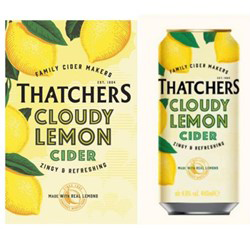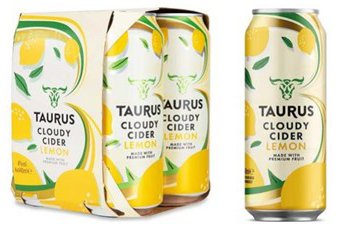In an important decision, the Court of Appeal has concluded that discount supermarket Aldi had infringed the packaging trade mark owned by Thatchers Cider Company, when Aldi launched its competing 'lookalike' lemon cider drink in its stores. Lookalike products and packaging have long been an issue for brand-leaders, and this decision provides them with useful guidance as to how best to build an integrated IP portfolio that will assist in guarding against such encroachments, as well as the issues that the Court will consider when assessing whether a lookalike takes unfair advantage of a registered trade mark. For those looking to emulate the success of a market-leader, the effect of the decision is not that 'benchmarking', in terms of both quality and packaging, is per se illegitimate. However, the decision confirms that there will be cases where the relevant line will be crossed and amount to infringement.
Background
Thatchers, the largest family-run independent cider producer in the UK, launched a cloudy lemon cider product in 2020. It applied for, and obtained, a registered trade mark for the device shown below in relation to cider and alcoholic beverages, except beer (see also below for a representation of the mark as used on Thatchers' packaging). The Thatchers product has sold well, and it has spent £2.9 million in marketing it.
Aldi, the well-known discount supermarket, launched a cloudy lemon cider product within its Taurus cider range in May 2022 using the packaging shown below. Aldi accepted that it had used the Thatchers product as a 'benchmark' product, both in terms of quality (it was a 'quality barometer', albeit its product did not use real lemon juice) and the packaging. Specifically, Aldi had asked for the packaging to be "… a hybrid of Taurus and Thatcher's [sic] - i.e., a bit more playful – and add lemons as Thatcher's etc". There was no evidence of any promotional spend by Aldi before the Court.
Thatchers began legal proceedings against Aldi for trade mark infringement and passing off. In a judgment handed down in January 2024, the IPEC held that, despite the benchmarking referred to above, there was no passing off and no trade mark infringement: in particular, there was no likelihood of confusion on the part of the relevant public and, whilst the Thatchers mark had a reputation, and the Aldi sign caused there to be a link with the Thatchers trade mark, this had caused no detriment to the mark's distinctive character and reputation, and no unfair advantage to Aldi. Our report on the IPEC decision is available here.
The Court of Appeal has now overturned the IPEC's finding in relation to unfair advantage, concluding that Aldi's branding did take unfair advantage of the reputation of Thatchers' trade mark through a 'transfer of image'. This unfair advantage allowed Aldi to benefit from Thatchers' investment and promotion, rather than forcing Aldi to compete purely on price, quality, or its own promotion.

Thatchers

Aldi's house brand, Taurus
Court of Appeal decision
Similarity assessment / 'link'
Trade marks, with a reputation, are protected from specific kinds of harm caused by others using similar signs which may lead to loss of distinctiveness, detriment to repute and the taking of unfair advantage. For these kinds of infringement, there is no requirement of a likelihood of confusion between the trade mark and the allegedly infringing sign. Instead, there must be a degree of similarity that causes the public to call to mind and mentally link the trade mark with the infringing sign.
Thatchers argued that there was a difference between (i) the assessment of similarity to determine whether there is a likelihood of confusion between a mark and sign, and (ii) the assessment of similarity to decide whether there is a link leading to, (for example), unfair advantage, because each assessment is made for a different purpose. The IPEC had found, when comparing the trade mark and Aldi's sign (which it defined as a can of Aldi's product) for the purpose of assessing likelihood of confusion, that they were similar, but only to a low degree.
On appeal, Thatchers argued that this finding could not simply be imported into the assessment of whether there was a link between the trade mark and the sign. Whilst the Court of Appeal agreed that it was appropriate to take the purpose of the analysis into account, Arnold LJ noted that it was commonplace to make a single assessment for both purposes – and there was "nothing wrong with taking such a short-cut", as long as the appropriate factors were considered at the relevant stages. The Court of Appeal also redefined Aldi's 'sign' to mean the graphics on its cans and packaging, rather than the three-dimensional product itself.
The consequence was that, for the purposes of assessing whether Aldi had taken unfair advantage of Thatchers' mark, the IPEC should have assessed the similarity between the mark and sign at a greater level.
Unfair advantage
Despite Thatchers arguing that there had been a 'transfer of image' from its trade mark to Aldi's product, this point was simply not discussed in the IPEC's judgment. The Court of Appeal therefore considered it afresh. It accepted that Aldi's branding for its cloudy lemon cider product was a departure from its usual house style for its Taurus range (which Thatchers argued was based on Strongbow's branding, rather than standing on its own merits), and also reviewed the evidence which showed that the Aldi product had achieved significant sales in a short period without promotion.
Drawing this together, the Court of Appeal agreed with Thatchers that Aldi's product design was 'riding on the coat-tails' of its trade mark, and had clearly been designed in such a way to convey the message that "the Aldi Product was like the Thatchers Product, only cheaper" (Aldi is well-known for its advertising slogan "like brands, only cheaper"). As such, Aldi had taken unfair advantage of, and had profited from, Thatchers' investment in its product development and promotion.
The Court of Appeal considered Aldi's intentions at a number of points. The Court observed that a clear intention to exploit a trade mark's reputation is more likely to lead to a finding that a party took unfair advantage, but it is not necessary to prove that subjective intention if the effect was that they took unfair advantage.
The Court of Appeal noted in particular that Aldi had departed from its house style to develop its cloudy lemon cider product, had imitated aspects of Thatchers' design (including faint horizontal lines, with the Court agreeing that it is "often the reproduction of inessential details which gives away copying"), and had referred extensively to Thatchers' product in its design process.
Detriment to reputation
Thatchers had also argued that the difference in quality between its and Aldi's product could tarnish the reputation of its trade mark. The IPEC had accepted that there was a difference in quality between the two products, but concluded that there was not such a difference as to cast the Thatchers trade mark in a negative light.
The Court of Appeal likewise dismissed this argument on appeal.
Policy arguments
The Court of Appeal acknowledged that the IPEC decision appeared to have divided opinion. While some commentators argued that the trial court decision upheld fair competition and hence cheaper prices, others viewed it as a failure to protect brand owners from copycat packaging. However, the Court of Appeal stressed that its role was to apply the law rather than enter into policy debates. This was particularly important because, as part of its argument in relation to unfair advantage, Aldi asked the Court (as an argument of last resort) to depart from a key decision of the European Court of Justice (CJEU), L'Oréal v Bellure (concerned with 'smell-alike' perfumes) on unfair advantage.
The Court of Appeal declined to depart from this decision for a number of reasons. Parliament had not updated the relevant statute following Brexit, leaving it harmonised across the EU. The CJEU's decision set out a principled framework for assessing unfair advantage, and the effect of Aldi's request would be to invite the Court to develop new principles from scratch, thereby creating considerable uncertainty. The Court of Appeal also stressed that it was maintaining an important distinction between comparative advertising (which can be permitted where fair and transparent) and 'transfer of image' cases.
Comment
Brand owners will welcome the Court of Appeal's judgment as it enhances the scope for protection from 'lookalike' packaging for products, which will be particularly valuable in those cases where there is no confusion, or likelihood of confusion, between the 'benchmark' brand and its cheaper alternative. Pending a further possible appeal to the Supreme Court (Aldi has said it intends to seek permission to appeal), those wishing to signal a message that they are 'like brands, only cheaper' will need to tread a careful line when conducting a benchmarking assessment. In view of the Court of Appeal's comments endorsing fair and transparent comparative advertising, this may be an attractive alternative, provided it is done transparently and without impinging on the intellectual property rights of others.
Brands seeking to distinguish themselves in the market should be aware that IP protection for their packaging provides useful protection from unfair competition as well as consumer deception. As is mentioned in the judgment, other IP rights and, in particular, registered designs and even copyright can help fortify the protection of goods and their packaging.
From a trade mark registration perspective, brands may wish to revisit their current trade mark filing strategies and consider, if they have not done so already, filing for a suite of rights where costs permit that protect packaging both with and without the brand name to guard against lookalikes. It is evident from this case that where cases hinge on likelihood of confusion, including the brand name on the packaging alongside all other distinctive features could result in a finding of non-infringement, whilst the cases for reputation and unfair advantage could still be successful.
Related coverage
Global Legal Post
New Law Journal
World IP Review
The Independent
International Adviser